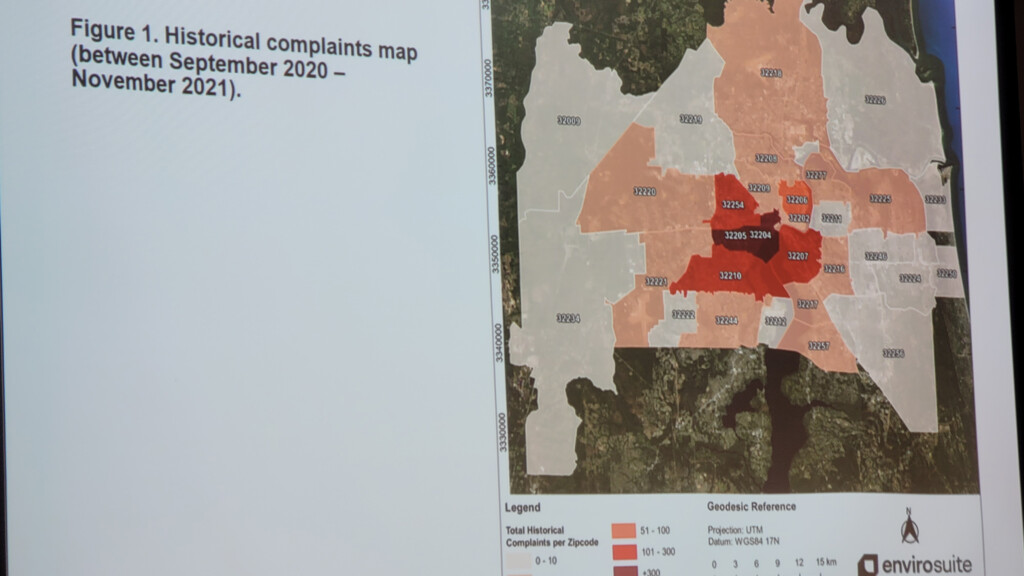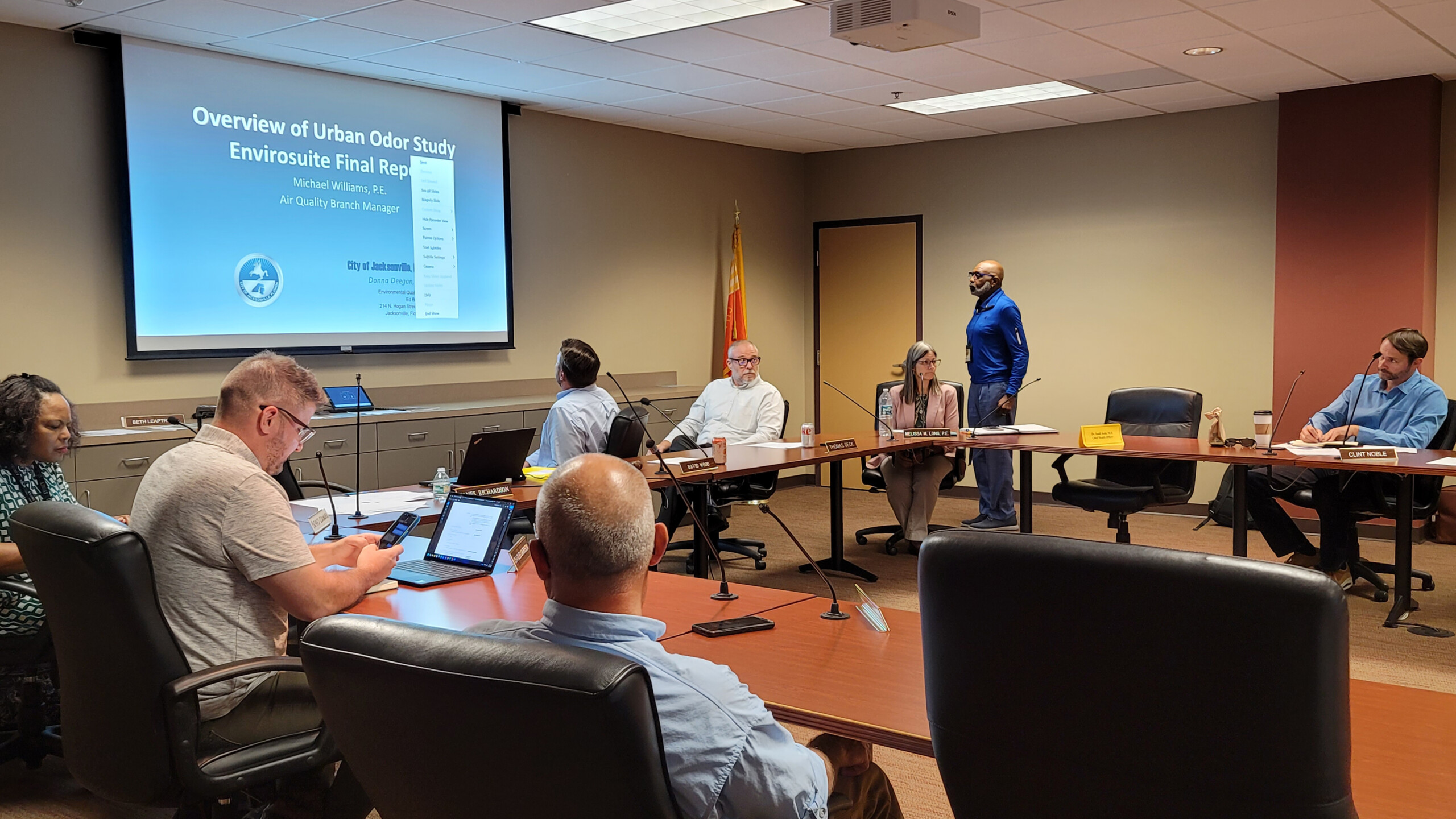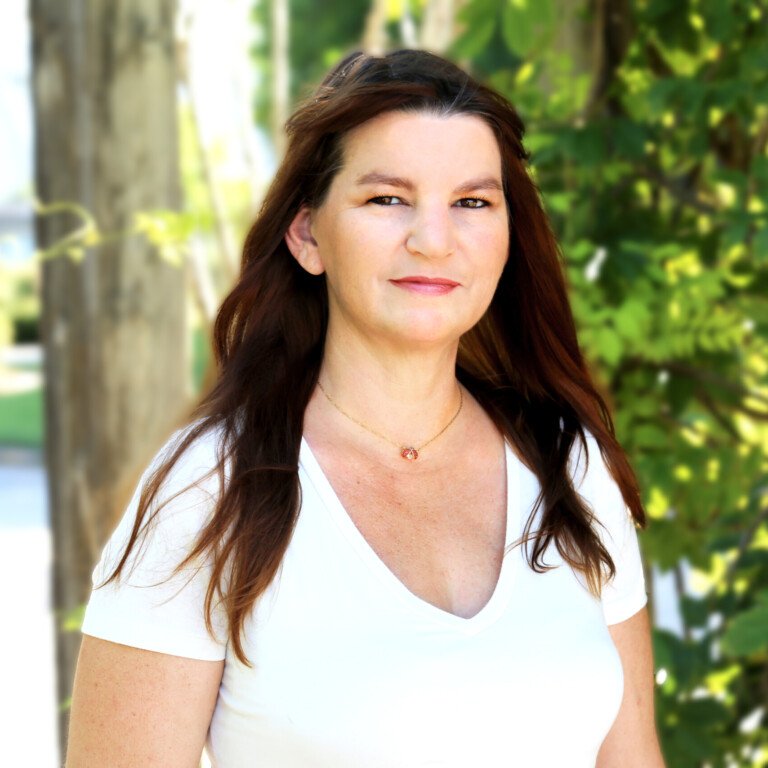A new study prompted by hundreds of odor complaints in Murray Hill and surrounding areas several years ago did not pinpoint the source of the odors.
The study, funded by the Jacksonville Environmental Protection Board, began in April 2022 and ended in March of this year. It was to be released to the public Tuesday.
Thousands of complaints were filed around the Murray Hill area between 2020 and 2021, spiking in January and September of 2021. Those prompted the $125,000 study, conducted through Envirosuite, an environmental consulting company, which installed sensors to try to track the odors and their source.
The study followed more than 4,000 complaints over a period of time, many of which pointed fingers at Murray Hill company International Flavors and Fragrances.
Mike Williams, air quality branch manager with the city’s Environmental Quality Division, highlighted the study’s findings Monday in a presentation to staff.
The good news is that now, odor complaints have dropped significantly and several companies, including the fragrance firm, have addressed potential sources of those issues.
But the study didn’t solidly pinpoint the origins of the smells, and some faulty sensors led to bad data in the second half of the study.
“The study did not reveal any major sources or complaints in the area that we didn’t already know about,” Williams said. “We still consider it a success.”
That’s because the study laid a foundation for better predicting odor complaints in the future if the city decides to fund its own work on odor issues going forward.

Environmental Protection Board member Charles Garrison, who listened to a presentation on the highlights of the report Monday, said he was not satisfied with the bad sensors, but he was satisfied with the overall report.
And it is possible that the city’s Environmental Quality Division could invest in further research on its own to gather better data, preferably with better VOC sensors, or Volatile Organic Compound sensors, which detect levels in the air.
Garrison said he believes that might be a worthwhile pursuit.
“We all want to live in a city where we don’t have to worry about smells and odor issues,” Garrison said. “So the more that we have in our toolbox, if it costs a little money, but improves quality of life … absolutely.”







